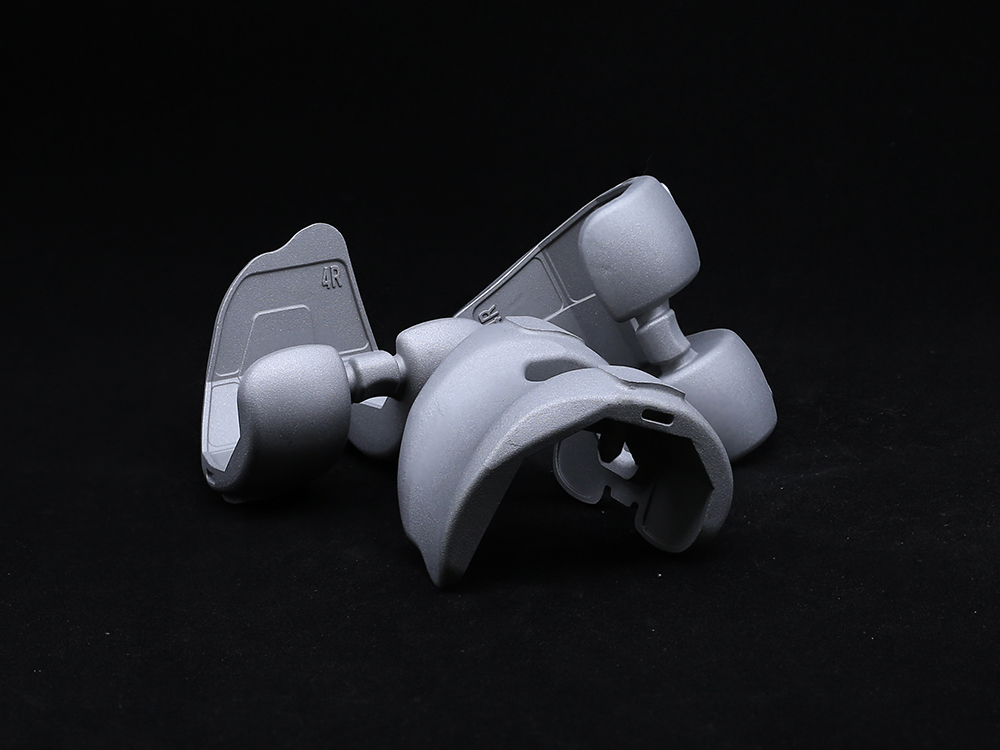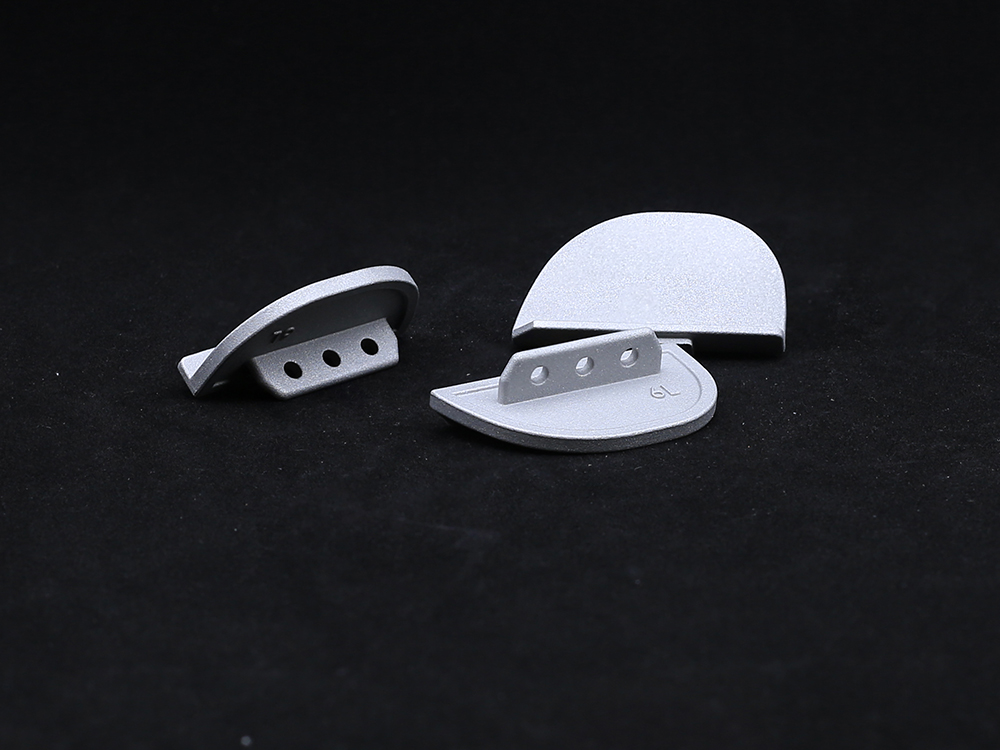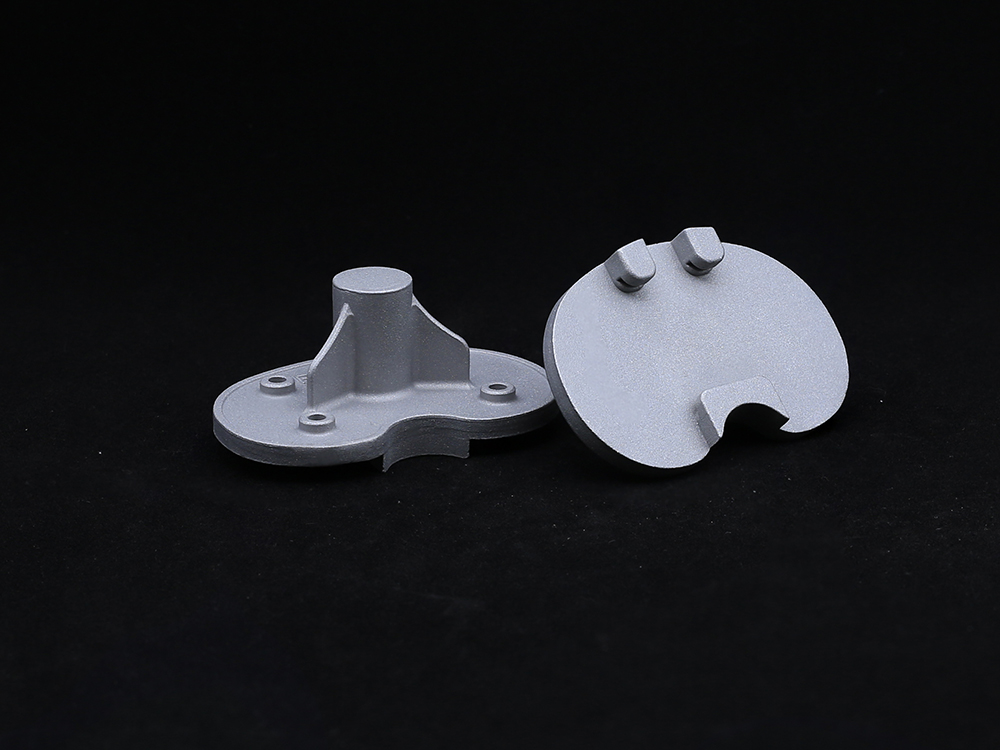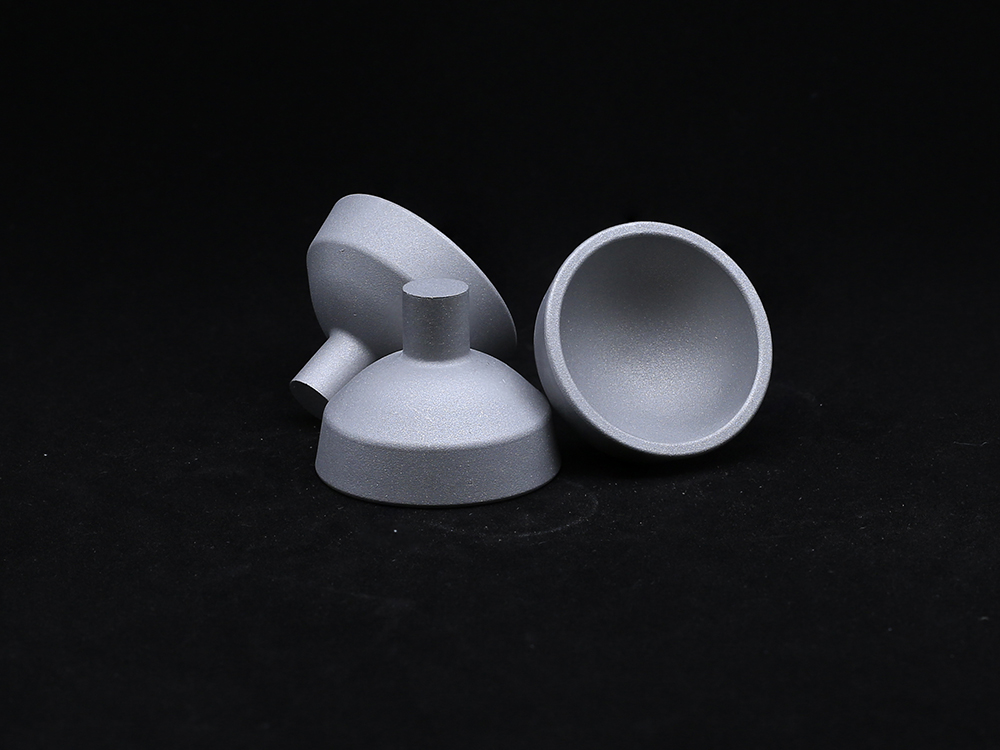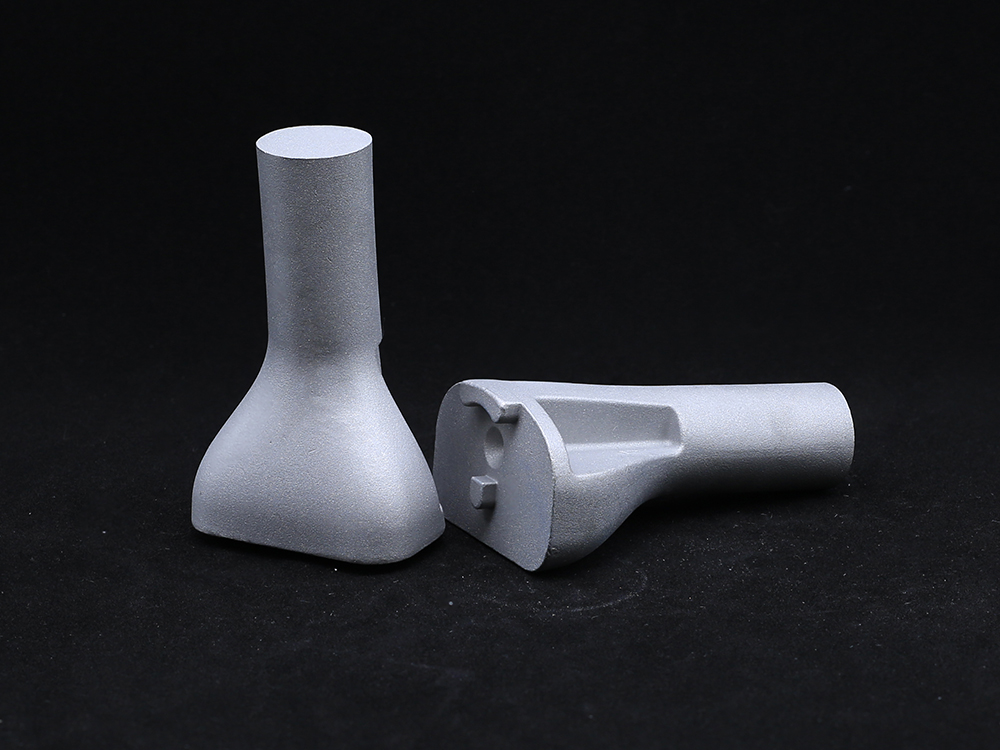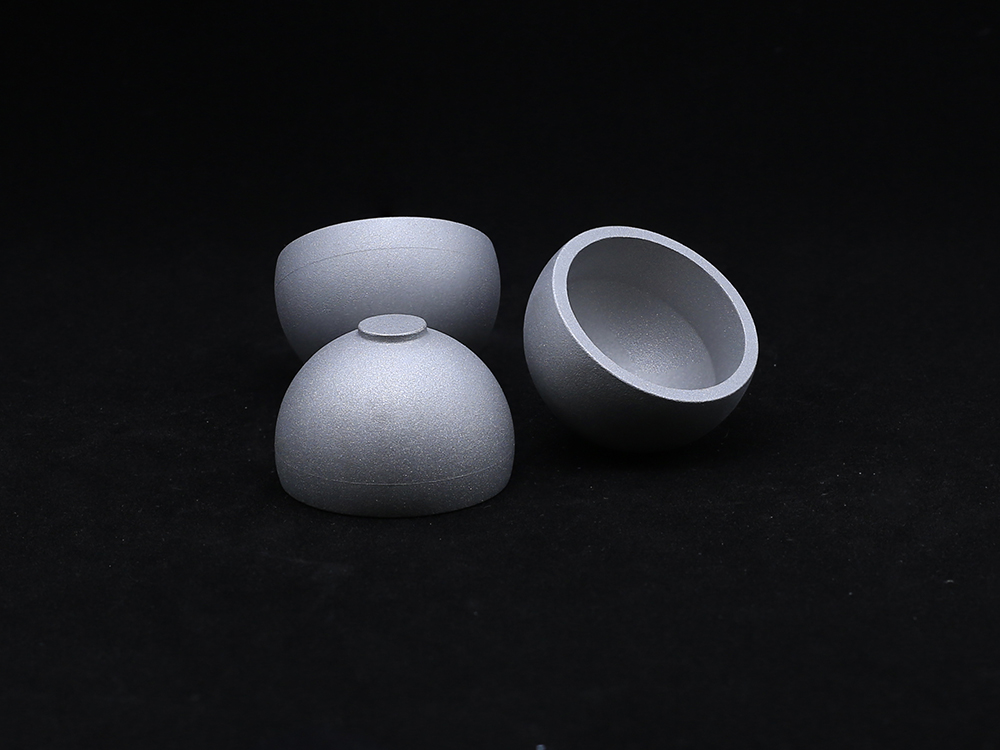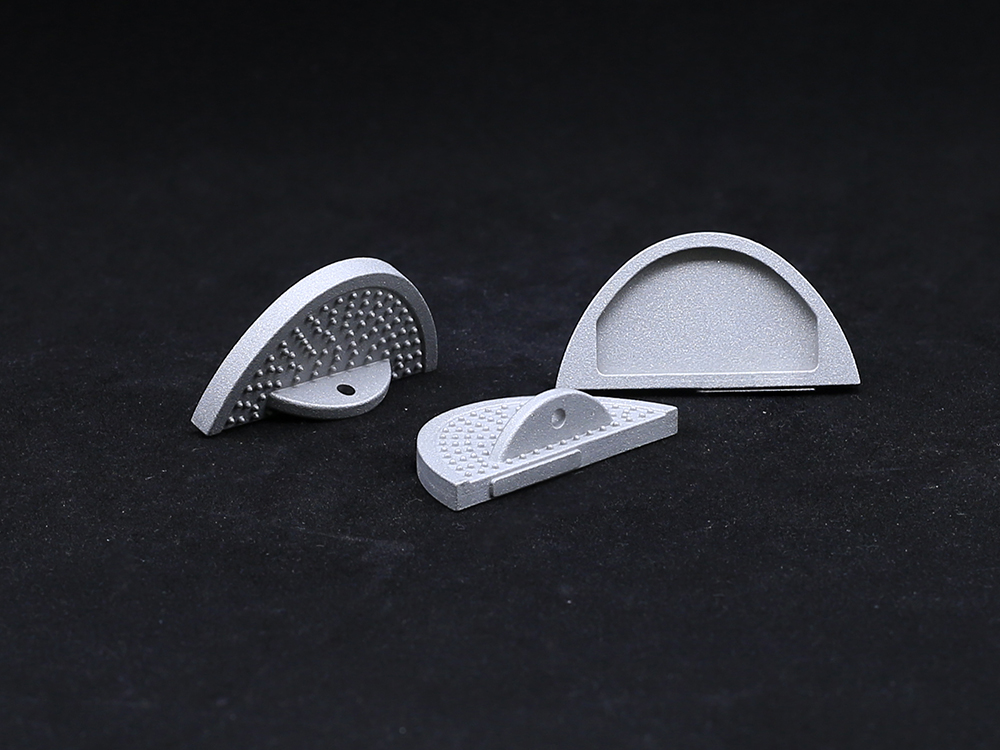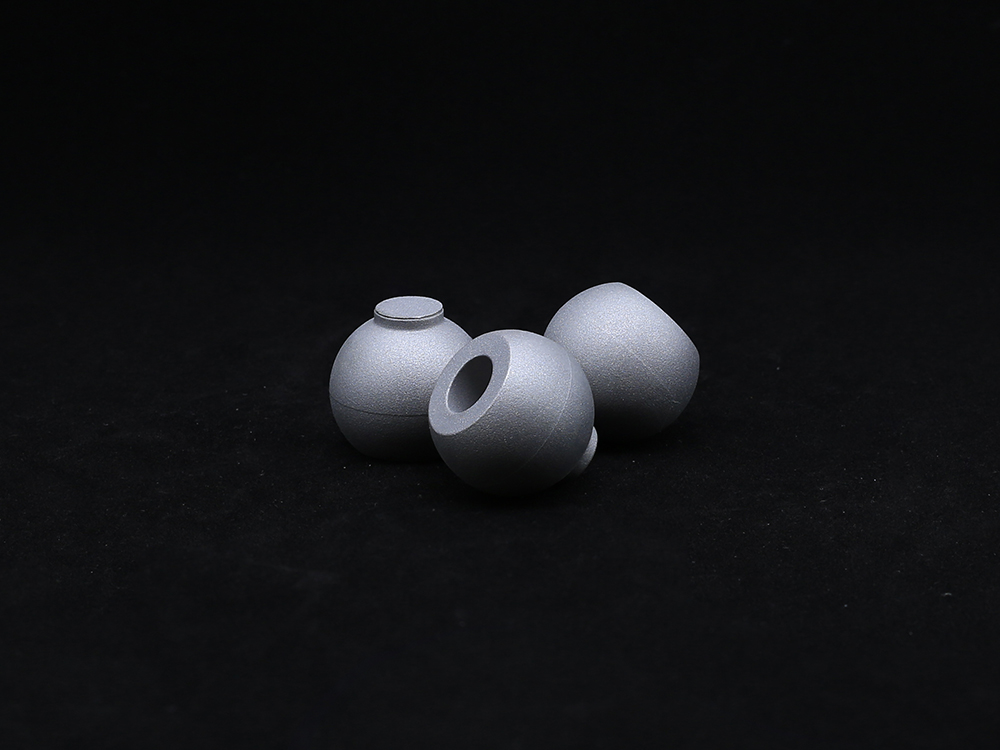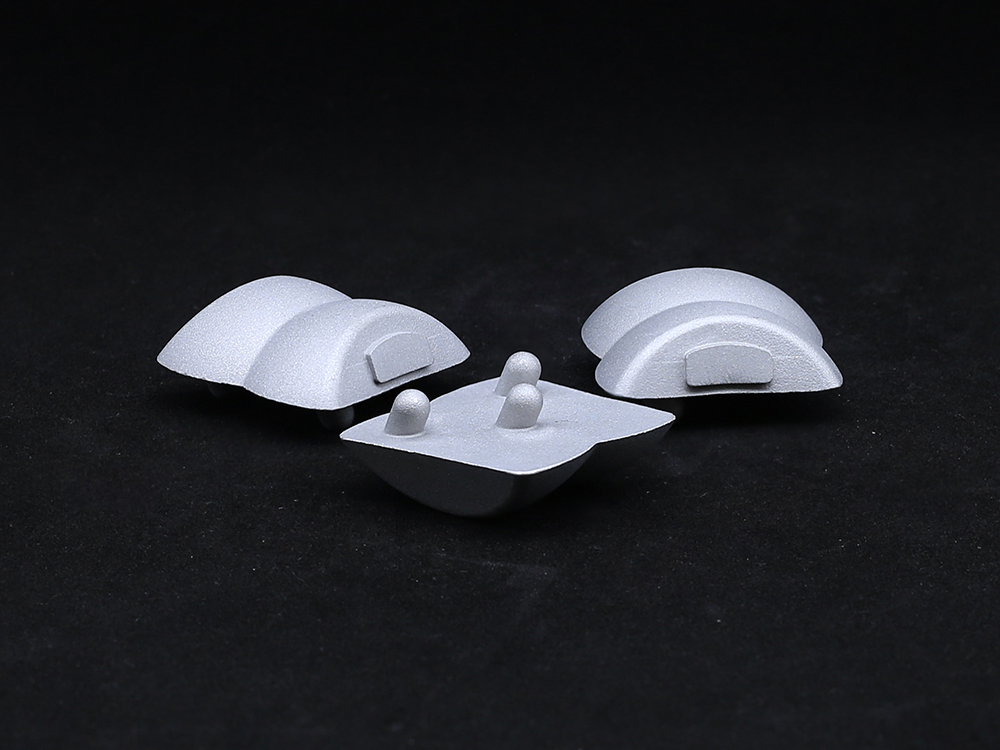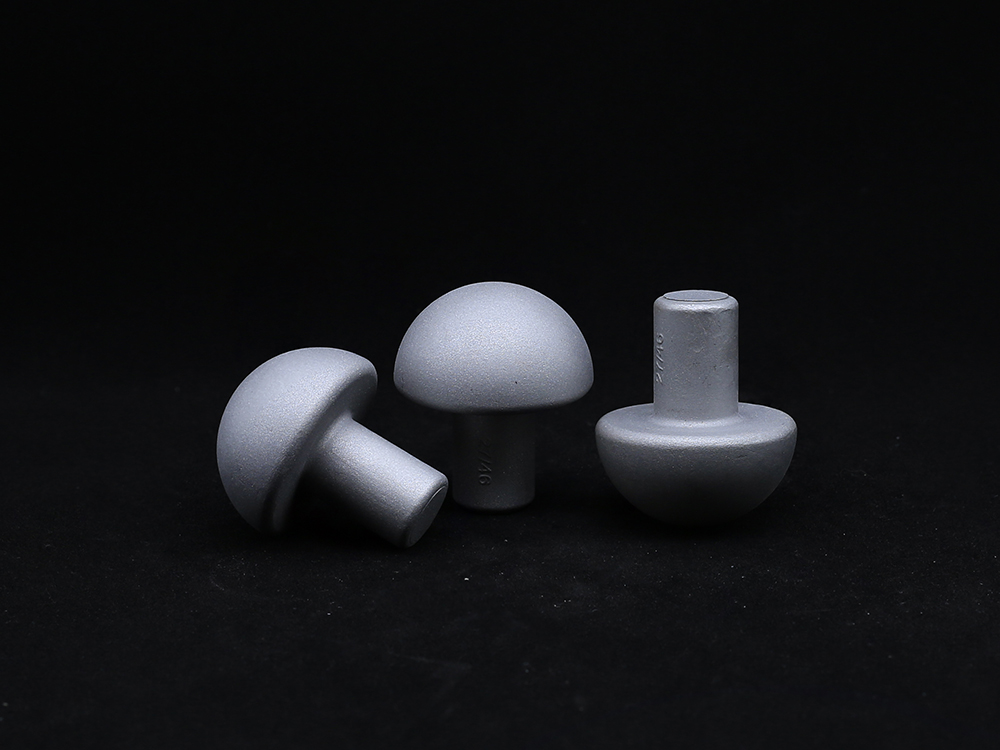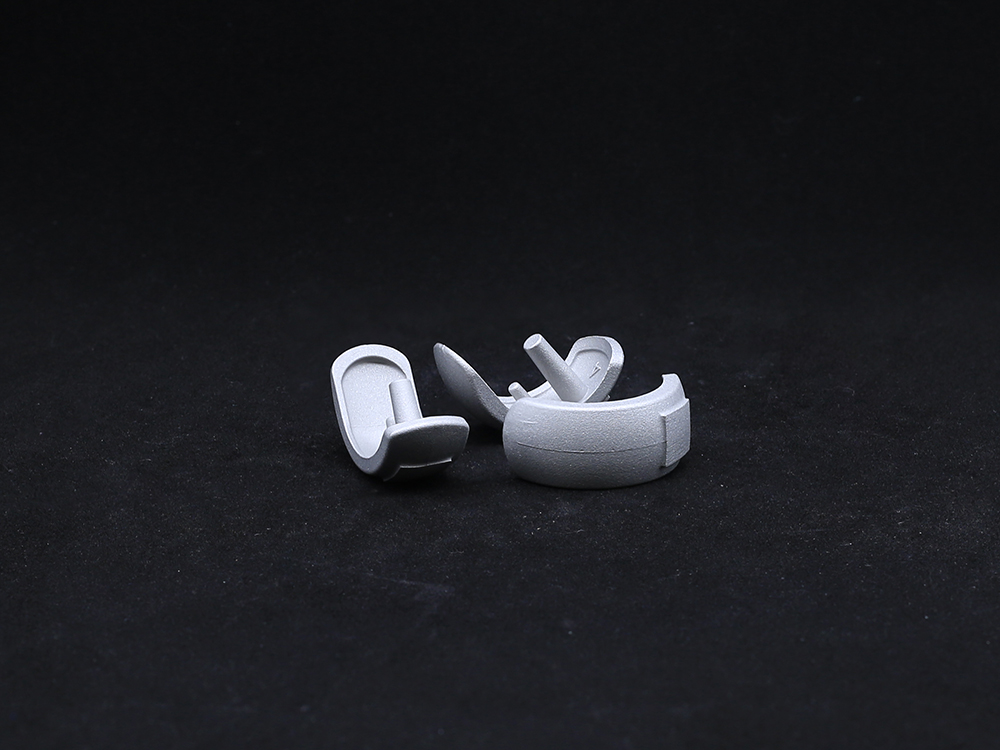- Tel: +8613911709825 /
- Email: ry@rays-casting.com /
Precision Revision Femoral Condyle for Complex Knee Revision
Understanding the Critical Role of Revision Femoral Condyle in Industrial Applications
The Revision Femoral Condyle represents a critical component in a diverse array of heavy industrial machinery and structural applications, particularly where wear, stress, and corrosion resistance are paramount. Unlike standard components, revision parts are engineered for enhanced durability and extended operational life, often deployed in environments that push the limits of material science and mechanical engineering. This makes them indispensable in sectors such as petrochemicals, metallurgy, and large-scale water management and drainage systems. Our focus here is to delve into the intricate details of their design, manufacturing, and application, highlighting how advanced engineering contributes to superior performance and long-term cost efficiencies.
The demand for robust, high-performance components like the Revision Femoral Condyle is continuously growing due to the escalating complexity and scale of industrial operations. Industries are increasingly seeking solutions that not only meet stringent performance requirements but also contribute to energy efficiency and reduced maintenance downtime. This technical overview aims to provide B2B decision-makers and technical personnel with a comprehensive understanding of the value proposition offered by meticulously engineered revision components.
Industry Trends and Technological Advancements in Critical Components
The industrial landscape is undergoing significant transformation, driven by advancements in material science, manufacturing automation, and predictive maintenance technologies. For components like the Revision Femoral Condyle, this translates into a constant evolution towards materials with higher strength-to-weight ratios, superior wear resistance, and enhanced corrosion protection. The integration of advanced sensor technologies and the rise of Industry 4.0 paradigms are also influencing design, allowing for real-time performance monitoring and more proactive maintenance strategies. This shift minimizes unexpected failures and extends the operational lifespan of critical infrastructure.
Key trends include the increasing adoption of high-nickel alloys and specialized stainless steels for their resistance to aggressive chemical environments, alongside precision manufacturing techniques that ensure dimensional accuracy and surface finish. Furthermore, additive manufacturing (AM) is beginning to play a role in rapid prototyping and specialized component production, although traditional methods like investment casting and forging remain dominant for high-volume, high-integrity parts. These technological leaps ensure that the Revision Femoral Condyle components can withstand increasingly harsh operational demands, from extreme temperatures to highly corrosive fluids, while simultaneously contributing to overall system efficiency and sustainability.
Comprehensive Manufacturing Process for Revision Femoral Condyle
The manufacturing of a high-performance Revision Femoral Condyle involves a multi-stage, meticulously controlled process to ensure superior mechanical properties, dimensional accuracy, and surface integrity. This process typically begins with the careful selection of specialized alloys, often high-strength stainless steels (e.g., Duplex, Super Duplex) or nickel-based alloys (e.g., Inconel, Hastelloy), chosen for their specific resistance to corrosion, high temperatures, or abrasion inherent to their end-use environment.
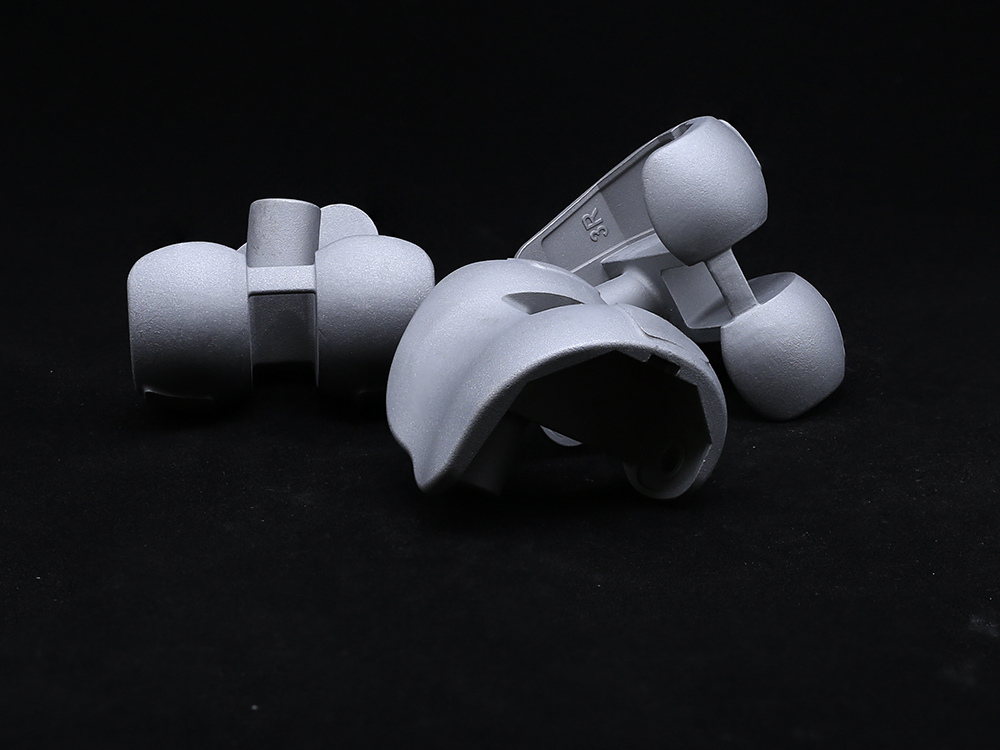
Visual representation of a component, emblematic of the precision involved in producing a Revision Femoral Condyle.
The primary forming processes include investment casting for intricate geometries and high-volume production, ensuring excellent surface finish and tight tolerances without extensive machining. Alternatively, forging is employed for components requiring exceptional strength and fatigue resistance, by enhancing grain structure. Following initial forming, CNC machining plays a crucial role in achieving the precise dimensions, complex features, and superior surface finish required for optimal fit and function. This multi-axis machining ensures adherence to exacting engineering blueprints.
Post-processing involves heat treatments to optimize material properties, such as solution annealing or precipitation hardening. Crucially, stringent inspection standards are applied throughout, including non-destructive testing (NDT) like ultrasonic testing (UT), radiographic testing (RT), and magnetic particle inspection (MPI), alongside comprehensive dimensional checks. Adherence to international standards such as ISO 9001 (Quality Management), ASTM (material specifications), and ANSI (dimensional standards) is mandatory, ensuring that each Revision Femoral Condyle meets or exceeds performance benchmarks. The expected service life for these components, depending on material and application, typically ranges from 15 to 30 years, significantly reducing lifecycle costs and improving system reliability in harsh environments.
Technical Specifications and Performance Parameters of Revision Femoral Condyle
The performance of a Revision Femoral Condyle is fundamentally defined by its meticulously engineered technical specifications. These parameters ensure optimal function under extreme operational conditions, ranging from high-pressure fluid transfer in petrochemical facilities to abrasive slurry handling in mining or corrosive wastewater treatment. Key specifications encompass material composition, mechanical properties, dimensional tolerances, and surface finish. For instance, a typical Revision Femoral Condyle designed for a high-wear environment might utilize Super Duplex Stainless Steel (e.g., UNS S32750) for its exceptional pitting and crevice corrosion resistance, coupled with high tensile strength.
Precision in these components is not merely a preference but a necessity. Dimensional accuracy, often verified against ASME B16.5 or client-specific drawings, ensures perfect fit and minimizes stress concentrations. Surface roughness, measured in Ra (arithmetic average), is also critical; a lower Ra value (e.g.,
Typical Parameters for High-Performance Revision Femoral Condyle
| Parameter | Specification/Range | Significance |
|---|---|---|
| Material Grade | Super Duplex SS (e.g., UNS S32750), Inconel 625 | Corrosion, strength, temperature resistance |
| Tensile Strength | > 690 MPa (100 ksi) | Resistance to breaking under tension |
| Yield Strength | > 485 MPa (70 ksi) | Resistance to permanent deformation |
| Hardness | 200-300 HBW | Wear and abrasion resistance |
| Operating Temperature | -50°C to +300°C | Suitability for diverse thermal environments |
| Corrosion Resistance | PREN > 40 (for Super Duplex) | Resistance to pitting, crevice, and stress corrosion cracking |
| Surface Finish (Ra) | ≤ 1.6 µm (standard), ≤ 0.8 µm (precision) | Reduced friction, improved fluid dynamics, enhanced corrosion resistance |
| Dimensional Tolerance | ISO 2768-mK / ASTM A995 | Ensures precise fit and interchangeability |
Application Scenarios and Strategic Advantages of Revision Femoral Condyle
The robust design and superior material properties of the Revision Femoral Condyle make it indispensable across a spectrum of demanding industrial applications where component integrity is paramount for operational safety and efficiency. In the petrochemical industry, these components are frequently utilized in high-pressure valves, pumps, and manifold systems handling corrosive crude oil, natural gas, or refined products. Their excellent resistance to sulfide stress cracking (SSC) and chloride-induced stress corrosion cracking (CSCC) significantly extends the operational lifespan in highly aggressive chemical environments, minimizing costly downtime and improving process safety.
Within the metallurgy sector, Revision Femoral Condyle components find application in hot rolling mills, continuous casting machinery, and furnace systems, where they withstand extreme temperatures, abrasive slag, and heavy mechanical loads. Their high-temperature strength and wear resistance contribute to reducing maintenance cycles and enhancing overall production output. For water supply and drainage systems, particularly in large-scale municipal or industrial wastewater treatment plants, these components are crucial for resilient valve systems, pump impellers, and pipe fittings. Here, their anti-corrosion properties ensure longevity despite continuous exposure to treated or untreated water, which can contain various corrosive agents and sediments, leading to significant energy savings through reduced system resistance and preventing leaks.
A key advantage of integrating these advanced components is their contribution to energy efficiency. By maintaining precise geometries and smooth internal surfaces over extended periods, they reduce flow turbulence and friction in fluid-handling systems, leading to lower energy consumption for pumps and compressors. Their enhanced durability also translates into reduced maintenance costs and minimized operational interruptions, directly improving the total cost of ownership (TCO) for industrial assets.
Manufacturer Comparison: Delivering Superior Revision Femoral Condyle Solutions
When selecting a supplier for high-performance Revision Femoral Condyle components, it's crucial to evaluate manufacturers based on a comprehensive set of criteria that goes beyond mere price. Factors such as material expertise, advanced manufacturing capabilities, adherence to stringent quality control, and robust after-sales support significantly influence the long-term reliability and value of the components. Leading manufacturers distinguish themselves by their commitment to innovation and their ability to provide tailored solutions for highly specific and challenging industrial applications.
A key differentiator is the depth of engineering knowledge, particularly in metallurgy and fluid dynamics, which allows for optimizing designs for specific operating conditions. While some manufacturers may offer lower initial costs, this often comes at the expense of material quality or precision in manufacturing, leading to premature failure and higher lifecycle costs. Reputable suppliers, in contrast, invest heavily in R&D and advanced testing facilities, ensuring that their Revision Femoral Condyle products not only meet but often exceed industry benchmarks for performance and durability.
Key Differentiators in Revision Femoral Condyle Manufacturing
| Category | Leading Manufacturer (e.g., Rays Casting) | Typical Industry Standard |
|---|---|---|
| Material Certification | Full traceability, Mill Test Certificates (MTC 3.1 or 3.2), NACE MR0175 compliance | Basic material certificate (MTC 2.1 or 2.2) |
| Manufacturing Process | Advanced Investment Casting & Precision CNC Machining, Forging Capabilities | Standard sand casting or basic machining |
| Quality Control | ISO 9001:2015, extensive NDT (UT, RT, MPI, LPI), CMM Dimensional Inspection, Hydrostatic Testing | Basic visual inspection, limited dimensional checks |
| Customization & Engineering Support | Dedicated engineering team, CFD/FEA analysis, rapid prototyping, bespoke alloy development | Limited or no customization, standard product lines |
| Warranty & Support | Comprehensive multi-year warranty, technical support, installation guidance, long-term partnership | Standard 1-year warranty, limited support |
Customized Solutions and Engineering Capabilities for Revision Femoral Condyle
Recognizing that off-the-shelf components rarely perfectly fit the unique demands of highly specialized industrial processes, the ability to offer customized Revision Femoral Condyle solutions is a significant advantage. Our engineering capabilities extend beyond standard product lines, allowing for the precise tailoring of components to specific operational parameters, environmental challenges, and integration requirements. This bespoke approach often involves in-depth consultation, where our experts collaborate with clients to understand the exact stressors, fluid dynamics, and temperature ranges their systems encounter.
The customization process leverages advanced tools such as Finite Element Analysis (FEA) for stress and fatigue simulation, Computational Fluid Dynamics (CFD) for optimizing flow paths and minimizing erosion, and 3D CAD modeling for rapid design iteration. This ensures that each custom Revision Femoral Condyle is optimized for performance, material efficiency, and longevity. Our experience in modifying material compositions (e.g., specific alloy chemistries for enhanced resistance to particular chemicals), adjusting geometric configurations, and applying specialized coatings (e.g., hard chrome, ceramic) allows us to address even the most challenging application scenarios. This ensures that the component not only performs its intended function but also enhances overall system efficiency and extends its lifespan, providing significant long-term value.
This deep engineering capability allows us to produce components that perfectly integrate into existing infrastructure while simultaneously mitigating known failure points or improving upon current performance benchmarks. From minor dimensional adjustments to complete redesigns of the Revision Femoral Condyle geometry for improved flow characteristics, our team is equipped to deliver solutions that are both technically robust and economically viable.
Application Cases and Client Success Stories with Revision Femoral Condyle
Our track record of delivering high-performance Revision Femoral Condyle components is best exemplified through concrete application cases and client success stories across various demanding industries. For instance, a major petrochemical plant faced persistent issues with premature wear in their crude oil transfer pumps, leading to costly unscheduled downtime every 18 months. By collaborating with our engineering team, they implemented custom-designed Revision Femoral Condyle components manufactured from a specialized Super Duplex Stainless Steel, optimized for high abrasion and sulfide corrosion resistance. This upgrade extended the pump's service interval to over 5 years, resulting in an estimated annual saving of $250,000 in maintenance and lost production.
In another instance, a large-scale municipal wastewater treatment facility required durable valve components for their aggressive sewage handling systems, which were failing every 2-3 years due to erosion and bio-fouling. Our customized Revision Femoral Condyle units, incorporating unique geometries and an electropolished internal surface finish, significantly reduced adherence of corrosive agents and biological growth. This improved the efficiency of their flow control and extended the component lifespan to over 10 years, leading to substantial reductions in energy consumption for pumping and manual cleaning efforts.
These cases underscore our commitment to providing not just components, but comprehensive engineering solutions that address critical operational challenges. Our client feedback consistently highlights the enhanced reliability, reduced total cost of ownership, and improved safety performance achieved through the deployment of our advanced Revision Femoral Condyle products. We pride ourselves on building long-term partnerships, offering ongoing technical support and proactive solutions to evolving industrial demands.
Ensuring Quality, Reliability, and Trustworthiness in Revision Femoral Condyle Supply
Our unwavering commitment to quality and reliability forms the bedrock of our operations, particularly for critical components like the Revision Femoral Condyle. We adhere to the most rigorous international standards, including ISO 9001:2015 certification for our quality management systems, ensuring consistency and excellence at every stage of design, manufacturing, and delivery. Furthermore, our products are often manufactured to meet specific industry benchmarks such as API (American Petroleum Institute) standards for oil and gas applications, or ASTM (American Society for Testing and Materials) material specifications, providing an additional layer of assurance regarding performance and safety.
We maintain stringent internal quality control protocols, including 100% material traceability, comprehensive non-destructive testing, and detailed final inspection reports for every Revision Femoral Condyle. Our proactive approach to customer support ensures seamless project execution, from initial consultation through to post-installation assistance. We offer transparent delivery schedules, typically ranging from 8-12 weeks for standard customized orders, depending on complexity and material availability, and provide clear communication throughout the process. Our products are backed by a comprehensive 5-year warranty against manufacturing defects, underscoring our confidence in their durability and performance. This commitment to quality and customer satisfaction builds enduring trust, making us a reliable partner for your most demanding industrial needs.
Frequently Asked Questions (FAQs) about Revision Femoral Condyle
-
Q1: What are the primary advantages of using a Revision Femoral Condyle over standard industrial components?
A1: Revision Femoral Condyle components are engineered for enhanced durability, superior wear and corrosion resistance, and extended operational life. They are designed to perform reliably in extreme conditions, reducing downtime, maintenance costs, and improving overall system efficiency compared to standard components that may fail prematurely under severe stress.
-
Q2: What materials are typically used for manufacturing these components?
A2: We primarily use high-performance alloys such as Super Duplex Stainless Steels (e.g., UNS S32750), Nickel-based alloys (e.g., Inconel 625, Hastelloy C276), and specialized high-strength steels. Material selection is critically dependent on the specific application's corrosive environment, temperature, and mechanical load requirements.
-
Q3: What quality control measures are in place for the Revision Femoral Condyle?
A3: Our manufacturing process adheres to ISO 9001:2015 standards and includes extensive non-destructive testing (NDT) such as Ultrasonic Testing (UT), Radiographic Testing (RT), and Magnetic Particle Inspection (MPI). We also conduct precise dimensional checks using CMM and provide full material traceability with Mill Test Certificates (MTCs).
-
Q4: Can you provide customized Revision Femoral Condyle solutions?
A4: Absolutely. We specialize in providing bespoke solutions. Our engineering team utilizes advanced tools like FEA and CFD to design and optimize components based on specific client requirements, ensuring optimal performance for unique operational challenges, including adjustments to geometry, material chemistry, and surface treatments.
-
Q5: What is the typical lead time for an order?
A5: Lead times vary based on complexity and material availability but typically range from 8 to 12 weeks for customized or specialized orders. We strive to communicate transparently throughout the production process to manage expectations effectively and ensure timely delivery.
Conclusion: Investing in Reliability with Revision Femoral Condyle
The deployment of meticulously engineered Revision Femoral Condyle components is not merely a purchasing decision but a strategic investment in the long-term reliability, efficiency, and safety of critical industrial infrastructure. As industries navigate increasingly complex operational environments and strive for greater sustainability, the demand for components that offer superior resistance to wear, corrosion, and extreme conditions will only intensify. Our commitment to advanced material science, precision manufacturing processes, and rigorous quality control ensures that each Revision Femoral Condyle delivers unparalleled performance and contributes significantly to reducing operational expenditures and minimizing unscheduled downtime.
By partnering with a manufacturer that prioritizes expertise, experience, authoritativeness, and trustworthiness, B2B decision-makers and technical personnel can confidently select components that are built to last. The integration of high-quality Revision Femoral Condyle units translates directly into enhanced process reliability, improved energy efficiency, and a substantial reduction in the total cost of ownership over the operational lifecycle of industrial assets.
References
- ASTM International. "Standard Practices for Castings, Investment, Carbon and Low-Alloy Steel, for General Industrial Use."
- ISO 9001:2015. "Quality management systems – Requirements."
- NACE International. "MR0175/ISO 15156: Petroleum and natural gas industries—Materials for use in H2S-containing environments in oil and gas production."
- American Society of Mechanical Engineers (ASME). "ASME B16.5: Pipe Flanges and Flanged Fittings."
- ASM Handbook, Volume 1: "Properties and Selection: Irons, Steels, and High-Performance Alloys."
Get a Custom Solution!
Contact Us To Provide You With More Professional Services

